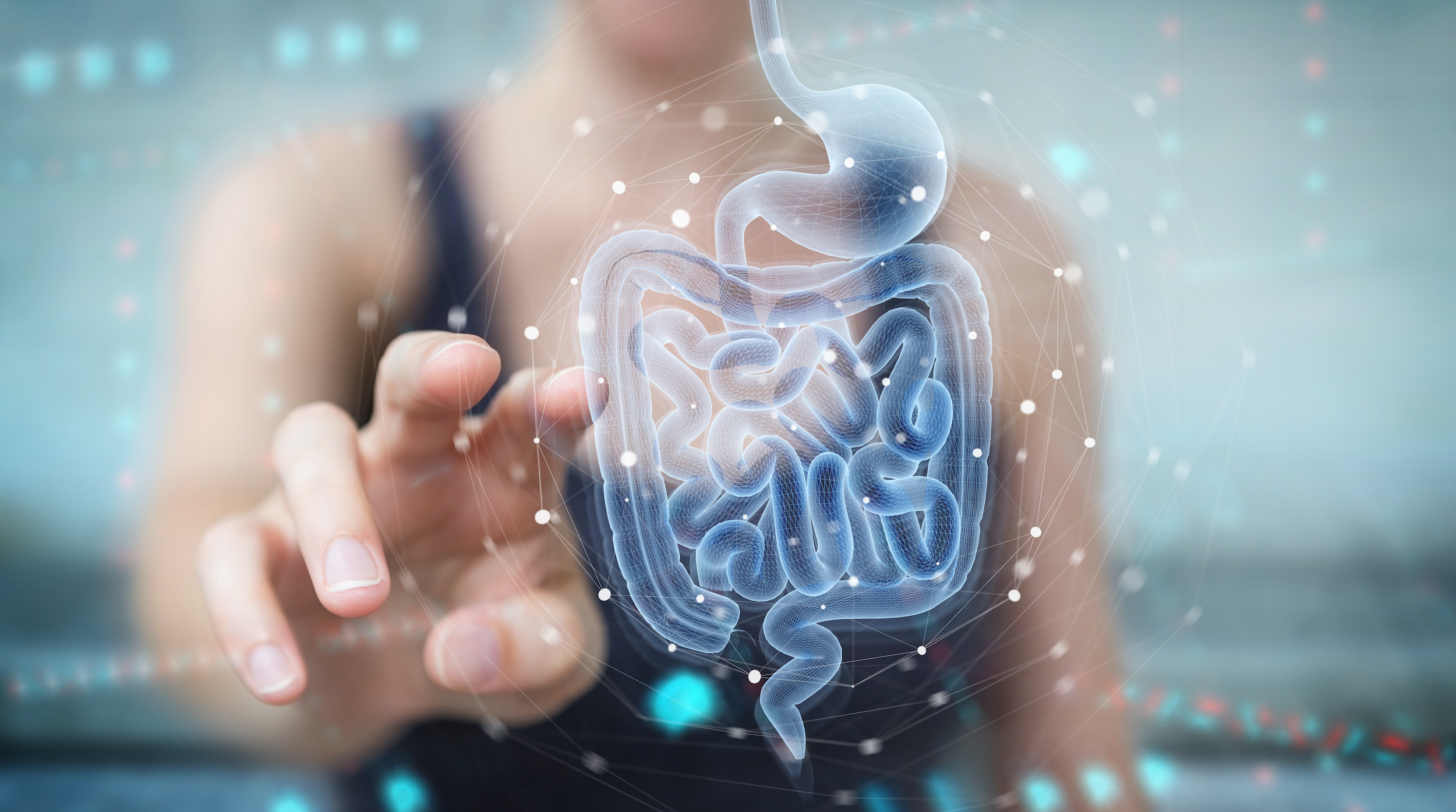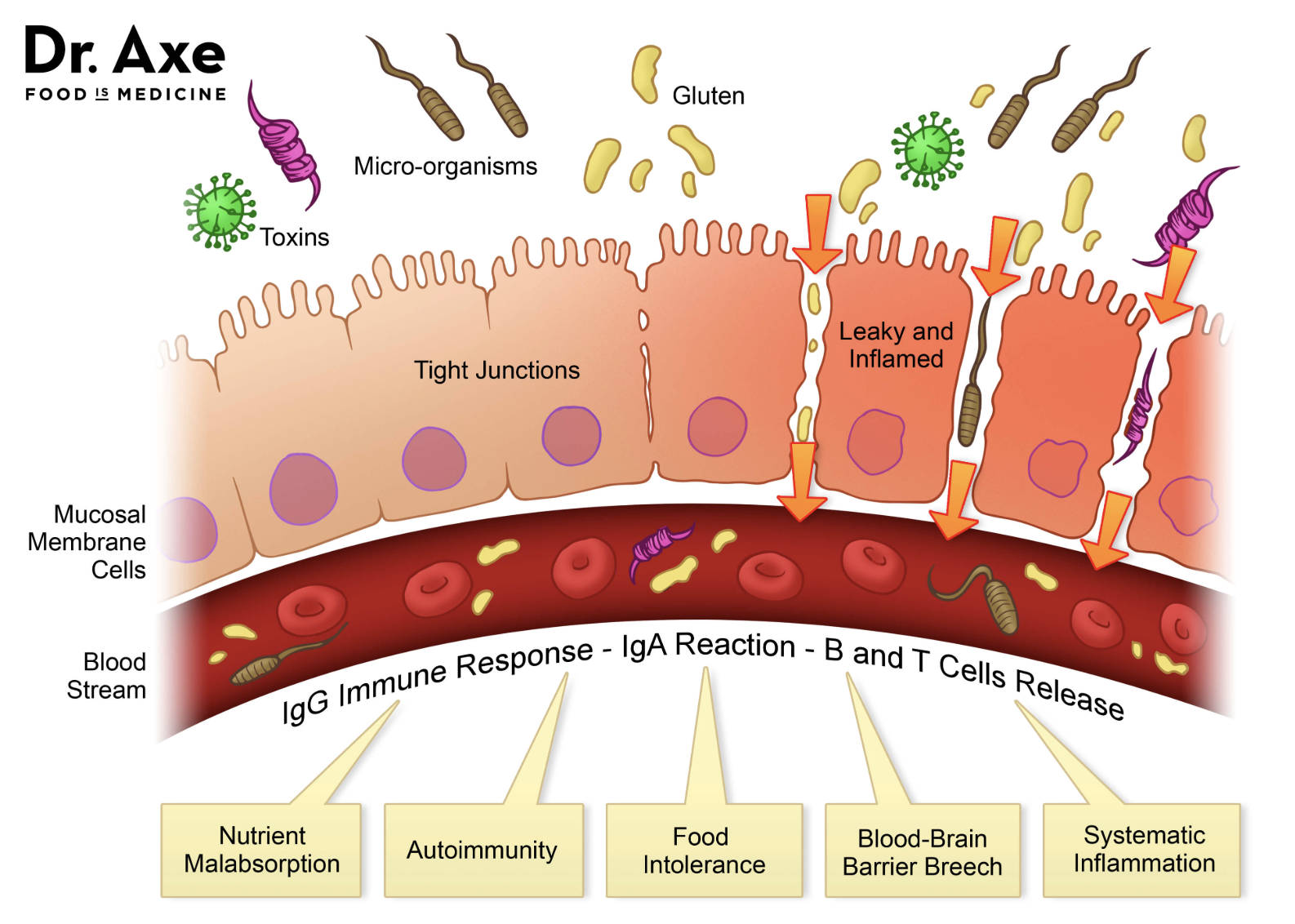Did you know that the health of your gut affects nearly everything else in your life? Your gut health is critical, from your energy levels to your mood, from weight loss to weight gain, from your ability to fight off sickness to how well you sleep at night. And yet, most of us don’t even think about it until something goes wrong. This post explores how gut health affects our overall health and well-being and offers tips on keeping our guts in good shape. Thank you for being part of the discussion!

HOW GUT HEALTH AFFECTS OVERALL HEALTH
- The gut is often called the “second brain” because it plays a significant role in our overall and mental health.
The vagus nerve connects the gut and brain, which helps regulate mood and anxiety. The gut also produces neurotransmitters like serotonin and dopamine, which regulate mood and cognition.
Researchers are still exploring the exact mechanisms by which the gut impacts mental health, but there is a strong connection between the two. What’s more, the gut microbiome is thought to strongly influence mental health. Given the importance of the gut-brain relationship, it is unsurprising that many people with mental health conditions report gastrointestinal symptoms.
When considering treatment for mental health conditions, it is essential to also consider the state of one’s gut health.
- The gut is responsible for digesting food and extracting nutrients, but it also helps to regulate metabolic health, immune system function, and more.
The human gastrointestinal tract, or gut, is a long and complex system responsible for digesting food and extracting nutrients. But the gut does more than just process food; it also helps to regulate immune system function and produce hormones that play a role in metabolism and is where most of our bacteria live – but not all.
The gut microbiome (the community of bacteria that lives in the gastrointestinal tract) plays a crucial role in overall health.
For example, keystone strains like Lactobacillus planterum, lactobacillus rhamnosus GG and bifidum lactis help to stabilize blood sugar, lowering the risk for type II diabetes.
So, if you want to improve your health, start with your gut!
- Poor gut health can lead to health problems, including obesity and autoimmune conditions like allergies.
The gut is home to trillions of bacteria, which play an essential role in digestion, nutrient absorption, and immune function, where we get our nutrients to keep our bodies healthy. When the balance of bacteria in the gut is disturbed, it can lead to inflammation and other problems – like obesity and allergies.
Obesity is one of the most common consequences of poor gut health. In fact, studies have shown that people with obesity are more likely to have an imbalance of gut bacteria called dysbiosis, where harmful gut bacteria outweigh beneficial gut bacteria. This imbalance can lead to insulin resistance and fat storage, contributing to weight gain.
Allergies that are common today have been linked to low beneficial bacteria throughout our GI tract. Just look at the list of strains below that are associated with allergies:
- Lactobacillus acidophilus
- Lactobacillus casei
- Lactobacillus gasseri
- Lactobacillus plantarum
- Lactobacillus rhamnosus
- Lactobacillus salvarius
- Bifidum
- Bifidum Breve
- Bifidum Infantis
- Bifidum Longum
Now that you know your gut health’s importance let’s look at how you can feed your microbiome to support overall health.
LIFESTYLE FACTORS THAT IMPACT GUT HEALTH
Gut health is an essential part of overall health, and there are several things you can do to improve it:
- Eat prebiotic and probiotic-rich foods
- Avoid processed foods – especially ultra-processed wheat
- Heal your leaky gut and
- Get your stool tested if symptoms don’t improve
Prebiotic foods are a type of dietary fibre that serves as fuel for gut bacteria. When gut bacteria break down prebiotics, they produce short-chain fatty acids (SCFAs), which have many health benefits. SCFAs help to reduce inflammation, promote intestinal motility, and strengthen the intestinal barrier. They also serve as an energy source for gut cells. In addition, SCFAs can help to increase the production of beneficial enzymes, hormones, and vitamins.
Including prebiotic foods in your diet is a simple way to promote gut health. Prebiotic foods help keep the good bacteria in your gut healthy. They include onions, garlic, bananas, oats, and apples – to name a few.
Heal Your Leaky Gut

On the other hand, processed foods like modern wheat contain ingredients that can damage the gut lining, causing a leaky gut that leads to inflammation and autoimmune conditions.
The symptoms of a leaky gut include abdominal pain, bloating, gas, diarrhea, and nutrient deficiencies. Wheat contains a gluten protein that can irritate the intestinal lining and cause inflammation. Unfortunately, it’s happening at a much higher rate than people realize.
When the intestinal lining is damaged, it becomes more permeable and allows bacteria and toxins to escape into the bloodstream. This can trigger an immune/autoimmune reaction and cause allergies and digestive problems. In some people, wheat can also damage the cells that produce enzymes that help to digest food. This can lead to malabsorption of nutrients and further digestive problems. In addition, wheat contains lectins, which are also proteins that can bind to the cells in the gut and cause damage.
Healing your leaky gut will help to improve gut health by sealing up any gaps in the gut lining that allow harmful substances to enter the bloodstream, like toxins and harmful bacteria.
Specialty nutrients for healing a leaky gut include anti-microbials, collagen, colostrum, L-glutamine, and essential fatty acids.
Probiotic-rich foods, such as yogurt, sauerkraut, kimchi, and fermented foods in general, contain beneficial bacteria that can help restore the bacteria’s balance and help to increase good gut bacteria that already live in our gut while lowering harmful bacteria that are responsible for so many of our symptoms.
Consider the bacteria strains just in sauerkraut:
Weissella species
Lactobacillus plantarum
Lactobacillus curvatus
Lactobacillus sakei
Lactobacillus paraplantarum
Lactobacillus coryniformis
Lactobacillus brevis
Lactococcus lactis
Leuconostoc mesenteroides
Leuconostoc fallax
Leuconostoc citreum
Leuconostoc argentinum
Pediococcus pentosaceus
When it comes to bacteria, it’s all about balance. A few harmful gut bacteria are beneficial, but good gut bacteria should be abundant. When the good guys are lowered, the harmful gut bacteria thrive, creating the perfect condition in the body for disease.
After you’ve implemented the strategies above and get no relief from gastrointestinal disturbances or other symptoms, stool testing may be the next step. Testing your stool can help identify any underlying gastrointestinal problems caused by gut dysfunction.
It can identify what good bacteria are missing and bad guys are proliferating, as well as parasites, yeast overgrowth, viruses and fungi disturbing the peace.
CONCLUSION
The microbiome is a hot topic in medical research, and for a good reason: there is growing evidence that the trillions of microbes that live in our bodies play a crucial role in our health.
However, the study of the microbiome is still in its infancy, and there is much that we don’t yet understand about how these tiny creatures affect our health. Nevertheless, there is very good evidence that the microbiome plays a role in metabolic conditions such as obesity and type 2 diabetes. Studies have shown that changes in the microbiome can lead to changes in metabolism and energy storage.
These findings suggest that lifestyle changes such as diet and exercise help manage these conditions by promoting healthy gut bacteria. As more research is conducted, we will undoubtedly learn more about the critical role of the microbiome in our health.
Working with a nutritionist can help you identify the root causes of gut disturbances and how to improve gut health. The great news is that you do not need to avoid certain foods forever.
Small changes to your diet and lifestyle can reduce your disease risk and improve your overall health.
Have you made any changes to improve your gut health?


